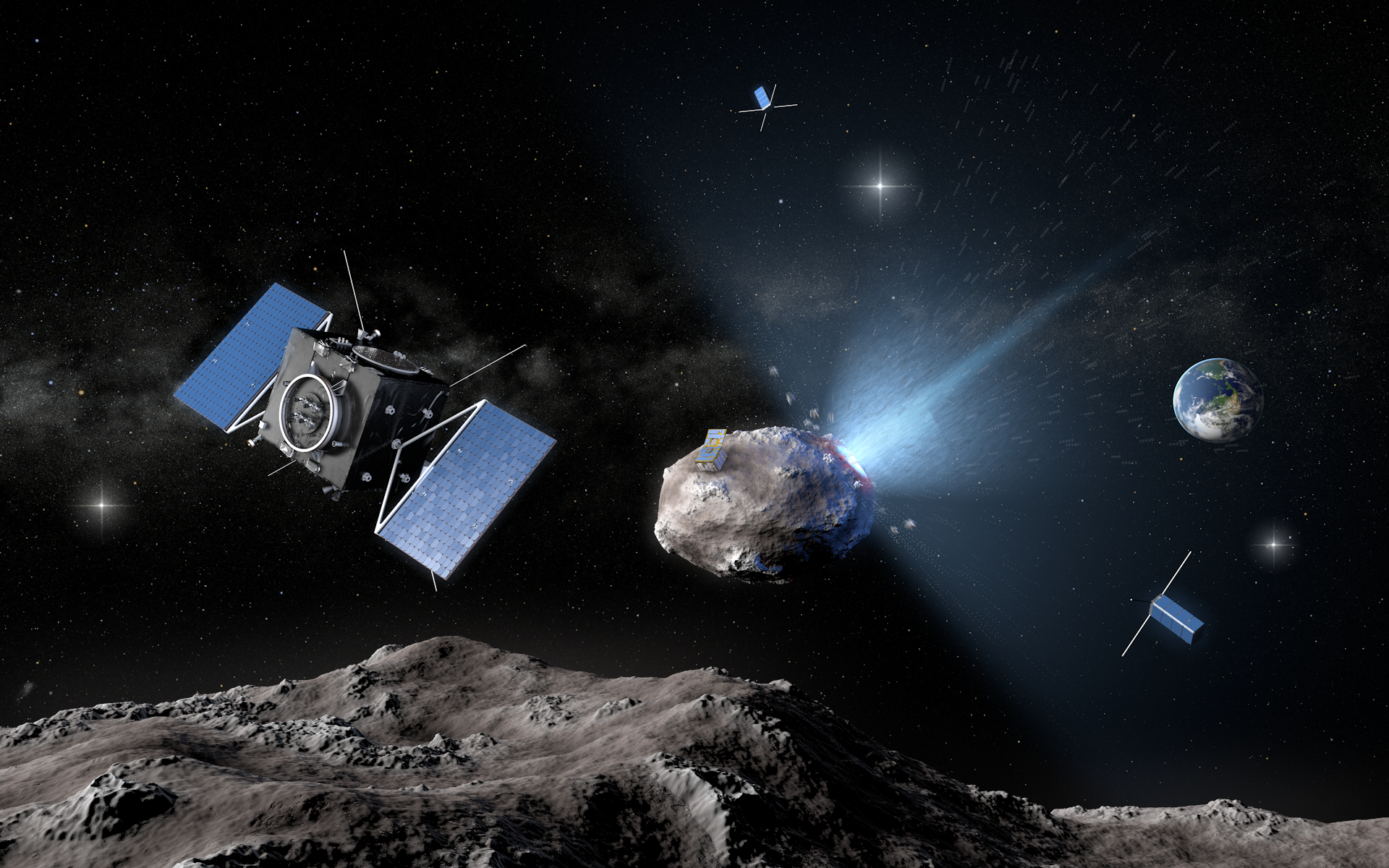110 years ago, on June 30, 1908, the world was shaken by the largest ever asteroid impact in the recent history of mankind. It devastated an area of around 2,000 square kilometers, equivalent in size to a large metropolitan region, in Tunguska, Russia. The fact that there were no victims was due solely to the fact that the asteroid hit the Earth in the remote Tunguska region in Siberia.
The video recordings of the "Meteor of Chelyabinsk", which caused serious damage in the megacity of the same name in the Urals and its surroundings on 15 February 2013, went around the world. With a diameter of about 15 to 20 meters, the rather small celestial body entered the Earth's atmosphere and broke apart 30 to 50 kilometers above the Earth. This caused an enormous blast wave, which damaged around 7,000 buildings in the region. About 1,500 people were injured, some of them seriously; most suffered cuts due to splintering glass and bruises.
This is why Marco Fuchs, the Chief Executive Officer of OHB SE, is deeply committed to researching these celestial bodies, which can pose a risk to humanity at any time: “There are many clever ideas on how to protect the Earth and, hence, also humanity from asteroid impacts. For me, the key to this is the potential which space technology already offers – or assuming that technological progress continues at the same swift rate - will do so in the future. One example is a joint cross-border initiative – after all, we are all affected by this risk, no matter where we live.”
The more research that is performed into asteroids – starting with localization and identification as well as their trajectories and composition – the better humanity can prepare for day X, when an asteroid of a potentially dangerous size (diameter of more than 100 meters) heads for the Earth. Statistically, an asteroid impact capable of causing major damage must be expected every few centuries according to researchers. “One problem is that we are far from identifying and registering all asteroids. Roughly 1,000 new asteroids enter our planetary system each year,” says Marc Scheper, department head of exploration studies at OHB System AG. “But even if we did identify a large asteroid on a collision course with the Earth, the space agencies would not be able to react spontaneously. Their response would call for careful planning and prior technological testing in space in order to launch an effective asteroid defense mission.”
“So we have to start now in close cooperation with other nations. We owe this to future generations as history shows that asteroid impacts can cause devastating damage. For this reason, OHB is contributing to these possibilities with its own technical developments and investments,” adds Marco Fuchs. “As well as this, OHB will again be sponsoring Asteroid Day 2018, which will be providing detailed information on asteroids with an interesting program from all around the world and also offering opportunities for us in terms of the use of its resources.”
Asteroid Day 2018: LIVE FROM LUXEMBOURG ...
Starting on June 29, science journalist and professor at Manchester University, Dr. Brian Cox, will be hosting the first 48-hour global broadcast about asteroids and space. He will be bringing together asteroid experts, politicians and celebrities. The 6-hour live segment from Luxembourg will be commencing at 12 noon CEST (6:00 am ET) on June 29 and will be repeated on June 30 and July 1. Two experts from the OHB Group will also be interviewed at the TV studio in Luxembourg. ESA and the European Southern Observatory will be producing their own live segment on June 30. The entire 48-hour broadcast can be viewed on the Asteroid Day website or via satellite.
... and as public events around the world
Events catering to all age groups will be held at science centers, planetariums, observatories, museums, schools, theaters, libraries, town congress halls and in public places all around the world. Most of the events are open to the general public and can be viewed on the Asteroid Day website.
Asteroid Day backed by high-profile supporters
Originally established in 2014, Asteroid Day is backed by such celebrities as the Astronomer Royal Prof. Lord Martin Rees (next to Prof. Stephen Hawking, who passed away in March, arguably the leading UK theoretical astrophysicist of the present), Dr. Brian May (radio astronomer and lead guitarist with rock band “Queen”), former NASA astronomers such as the physicist Dr. Edward Tsang “Ed” Lu (multiple ISS and MIR missions; chairman and co-founder of the B612 Foundation* for research into near-Earth objects and asteroid impact protection), Russell Louis “Rusty” Schweikart (Apollo 9 astronaut and vice chairman of the B612 Foundation) as well as the Asteroid Day founding members, the German film-maker Grig Richters and the US co-chairwoman of B612, Danica Remy.
Further experts and public figures such as ESA director-general Prof. Dr. Jan Wörner, astronauts and cosmonauts as well as politicians and the host of Asteroid Day, Luxembourg’s deputy prime minister Etienne Schneider, as well as the UK soprano and actress Sarah Brightman (UNESCO artist for peace) will be supporting them in their efforts to use Asteroid Day in 2018 as a means of arousing public awareness of asteroids and their role in our solar system. They will be highlighting the need to use science and technology to conduct research into asteroids, to broaden the scope for protecting us from asteroid impacts and to facilitate future exploratory missions. In 2016 the United Nations declared Asteroid Day an international day of education on June 30.
* The B612 Foundation owes its name to the fictitious asteroid “B612” in “The Little Prince” by Antoine de Saint-Exupéry.

Contact for media representatives:
Marianne Radel
Head of Corporate Communications
Phone: +49 421 2020 9159
Email: marianne.radel@ohb.de
Contact for investors and analysts:
Marcel Dietz
Investor Relations
Phone: +49 421 2020 6426
Email: ir@ohb.de
